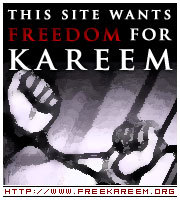The Paradise Called "Azad Kashmir"
There are many in Jammu Kashmir who still today believe the other side of the LoC i.e. in “Azad Kashmir” controlled by an Islamic Pakistan offers Muslims better life than J&K “controlled” by an ‘Infidel’ India. However, after the establishment of bus links between the two parts of J&K, this notion is fast falling apart.
In J&K, Gurjjars make up the third-largest ethnic group — after Kashmiri-speaking Muslims and Dogra Hindus. Over the years, they have emerged as a significant political entity in J&K, wielding considerable electoral influence in a quarter of the constituencies. Since the early 1990s, the group’s inclusion in the list of Scheduled Tribes has led to a significant improvement in its socio-economic profile, and now it is demanding political reservations as well. The Partition of 1947 saw the division of the Pir Panchal region — the traditional Gurjjar heartland. This led, in turn, to the separation of lakhs of [Muslim] Gurjjar families... Given the close ties that exist between the Gurjjars on both sides of the border, the troubles and fortunes of families and friends across the border have long been a subject of keen interest to the community. With the re-establishment of contact between J&K and Pakistan Occupied Kashmir (POK) by way of the Srinagar-Muzaffarabad and Poonch-Rawalakot bus links, there was suddenly an opportunity to find out about how relatives across the border were faring. As it turned out, many Gurjjar families in POK were found to be living in difficult conditions, and the community itself was on the verge of losing its identity. As those who came across to J&K from POK put it, the symbols of Gurjjar culture — its folk songs and music, traditions and age-old rituals — which are still visible in J&K, are missing on the other side. The majority of Gurjjars in POK seem to have forgotten the life of dhoks and mergs — the high-alpine meadows to which Gurjjar communities traditionally moved during the summer, and which are such an essential part of the Gurjjar heritage. One of the reasons why Gurjjar traditions were better preserved in J&K was the fact that the community enjoyed special privileges guaranteed under the tribal quota. No such legislation exists in Pakistan. In POK, it is said, nobody dares to speak Gojri in the bazaars and at public functions. In contrast, the J&K Cultural Academy regularly publishes books in Gojri, while NGOs such as Gurjjar Desh Charitable Trust and Gojri Anjumans are also working to preserve the language. There are even local radio programmes in Gojri. In fact, those who do write in Gojri in POK — like Rana Fazal Rajourivi — have to get their books published through the J&K Cultural Academy. ... Abdul Latief, an elderly Gurjjar from Bandi Abasspur in POK, who had come to visit his relatives in the village of Kalai in Poonch, attributed the dilution of his community’s ethnic, cultural and linguistic identity in Pakistan to state-sponsored marginalisation. “Our economic condition is vulnerable,” Latief says. “We are mostly illiterate and work as land-tillers on other people’s farms, or as shepherds.”... If this does not happen, the Gurjjars of POK may soon face extinction in a region that was part of their traditional homeland.[IE] |

No comments:
Post a Comment